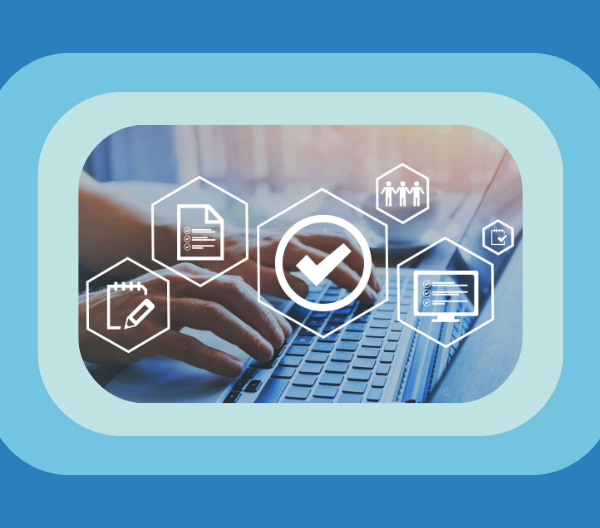Imagine you were on a team tasked with enhancing the community and inclusion of Snap Inc., developer of Snapchat. Over the course of six weeks, you work with a team to come up with a solution and present it to a Snap Inc. leadership team.
This exact challenge was posed to high school students at Portal Learning, a holistic, Career-Connected Learning (CCL) program taking experiential and personalized learning to new heights.
Currently, there is a disconnect between academic learning and the practical skills needed in the professional world, leaving less than 50% of high school students feeling their school experiences help them identify careers that match their skills and interests.
Portal Learning aims to bridge this divide by forging partnerships between education and industry, fostering economic growth and enhancing income mobility for the next generation.
To delve deeper into Portal Learning’s inspiration, key practices, and impact, I recently spoke with Ivan Cestero, Director of CCL at Portal Learning.
A Vision Inspired by Real-World Learning
Portal Learning was founded on the vision of enhancing the real-world learning experiences that Da Vinci Schools, a charter school network in South Los Angeles, were known for. Matt Wunder, the superintendent of Da Vinci Schools, along with Chet Pipkin, the former CEO of Belkin International, a global consumer electronics firm, recognized the potential to take experiential learning to a higher level by collaborating. Their idea was to create a micro-school within Belkin’s corporate headquarters, providing students with continuous opportunities to engage in real-world work and career development.
During the height of the pandemic, Portal Learning launched with a founding ninth-grade class of about 25 to 30 students, housed in a 5,000-square-foot space donated by Belkin. This unique setting allowed students direct access to Belkin employees, fostering mentorship, career workshops, design challenges, and job shadowing.
Powered by a small team and board, Portal expanded its network by partnering with over 10 corporations and nonprofits, including Fabletics and Snap Inc.
Selecting the Right Professional Partners
When reflecting on Portal Learning Professional Partners, Ivan shared, “What’s important is that they’re doing good work and that they’re willing to work with our kids and they believe in our mission. We are pathway or sector agnostic.”
Portal Learning’s approach to selecting professional partners is inclusive and focused on imparting durable skills that are essential across all career paths. They seek companies willing to collaborate with students on meaningful projects, whether local, national, or global. The key criterion is that these companies are committed to connecting education with employment and are eager to engage with students in real-time, ensuring a hands-on learning experience.
Importantly, partnerships are designed to be mutually beneficial, providing a return on investment for the companies involved. This can manifest as enhancements in intellectual property, enriched employee experiences, access to a diverse pool of young talent, or opportunities for impactful community engagement. These reciprocal benefits ensure that collaborations are sustainable and valuable for all stakeholders.
Fostering Durable Skills Through Experiential Learning
Central to Portal Learning’s philosophy is the development of durable skills. To effectively cultivate these skills, Portal employs a project-based learning approach, where students apply these skills practically, moving away from traditional academic methods to more experiential learning.
A hallmark of Portal Learning’s innovative approach is Project Consults – an immersive design challenge with Professional Partners. Through these consults, students practice the problem-solving process for real-world business challenges. Ivan shared how this not only benefits the students but also allows companies to leverage fresh, creative insights from young minds. “So you’re teaching young people to understand a design brief and manage the design thinking process to deliver on it, and then the company can take and use the IP or not.”
Ivan discussed how they have leveraged the Durable Skills Framework during a design challenge aimed at creating a fun durable skills development experience. Using the common lexicon for these skills, agreed upon by over 800 employers, one student team has been prototyping ‘Durable Skills Cards,’ a learning product in development to practice and validate these skills. “We see the Framework being a pathway to doing better project-based learning in schools and to get schools and companies using the same language,” Ivan shared.
Outcomes: Confidence and Connection Building
The impact of Portal Learning’s approach is evident in the outcomes observed among students. Data shows that students feel more engaged and confident in their project work, have a better understanding of their interests, and are more comfortable interacting with professionals. The repeated opportunities to work on real-world projects have significantly enhanced their creative confidence and essential skills like collaboration and critical thinking. Students have also reported growth in their social capital, gaining valuable connections with professionals outside their immediate circles.
Portal Learning exemplifies how innovative partnerships between business and education can create a workforce-ready generation. By fostering durable skills through real-world projects and active industry engagement, Portal is setting a new standard for experiential learning. This model not only benefits students but also helps bridge the gap between education and employment, advancing a pipeline of qualified talent and preparing the next generation for the challenges and opportunities of the professional world.
Interested in learning about how Portal Learning is bridging education and industry? Explore their resources:




